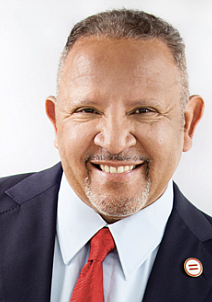Discriminatory laws have driven Black voters from the polls, by Marc H. Morial
4/18/2024, 6 p.m.
“If the United States wants to make good on its foundational claims of a democratic system of governance open to all citizens, it must find ways to close the racial turnout gap. Wider now than at any point in at least the past 16 years, the gap costs millions of votes from Americans of color all around the country. Perhaps most worrisome of all, the gap is growing most quickly in parts of the country that were previously covered under the pre-clearance regime of the 1965 Voting Rights Act until the disastrous Shelby County ruling.” – Brennan Center For Justice
Driven in part by restrictive laws enacted since the Supreme Court gutted the Voting Rights Act, the racial voting gap has exploded and grows wider by the year.
The National Urban League is fighting back. Reclaim Your Vote is a national effort to promote voter registration, voter education and voter activation with the power of the Urban League Affiliate and Volunteer movement and our strategic partners.
Each year, we engage millions of voters across the country to increase voter turnout and empower our communities to make their voices heard to drive change where they live and across America.
But until the Voting Rights Act is restored, we’re fighting an uphill battle.
While the racial voting gap has grown across the country, an analysis by the Brennan Center for Justice found it has grown twice as quickly in jurisdictions that had been covered by Section 5 of the Voting Rights Act until the Supreme Court struck it down with its decision in Shelby v. Holder in 2013.
Just the year before the decision, with President Obama’s reelection at stake, overall Black voter participation reached near-parity with whites. In the 2008 presidential election, the participation among young Black voters and Black women exceeded every other racial, gender and ethnic group.
The Shelby decision took a sledgehammer to that progress. Since 2013, at least 29 states have passed nearly 100 laws making it harder for eligible citizens to exercise their constitutional right to vote.
As the Brennan Center notes, “Many of these new laws are racially discriminatory. There is ample evidence that these kinds of laws fall hardest on communities of color, and a number have been struck down by courts as racially discriminatory.”
Driven by this relentless campaign of voter suppression, the racial voting gap in 2022 was the largest midterm gap since at least 2006, robbing the nation of a staggering 14 million votes.
In the presidential election of 2020, the racial gap represented about nine million votes, far more than President Biden’s seven million vote margin of victory in the popular vote.
While many states rushed to pass restrictive laws immediately after the Shelby decision — Texas announced the very same day it would implement a strict voter ID law that had been deniedpreclearance — the onslaught hasn’t relented. Last year, lawmakers introduced more than 350 restrictive bills in 47 states, with at least 17 of them in 14 states passed into law.
In the coming weeks, Urban League staffers and volunteers will be taking to the streets, knocking on doors and visiting college campuses helping eligible citizens navigate these changes to state laws and register to exercise their right to vote.
We’ll be text-banking and phone-banking, engaging face-to-face and on social media, making sure our communities are armed with accurate information and prepared to cast their ballots.
At the same time, we continue to fight on the state level for fair voting laws and on the national level for the passage of the Freedom to Vote Act, the John Lewis Voting Rights Advancement Act and the Protecting Our Democracy Act.
“We need our democracy to work, we need poverty to end, we need disenfranchisement to be a thing of the past because when people are suppressed or oppressed, it rages,” Stacy Abrams said. “It may be silent for some time, but eventually it will come out.”
The writer is president of the National Urban League.







